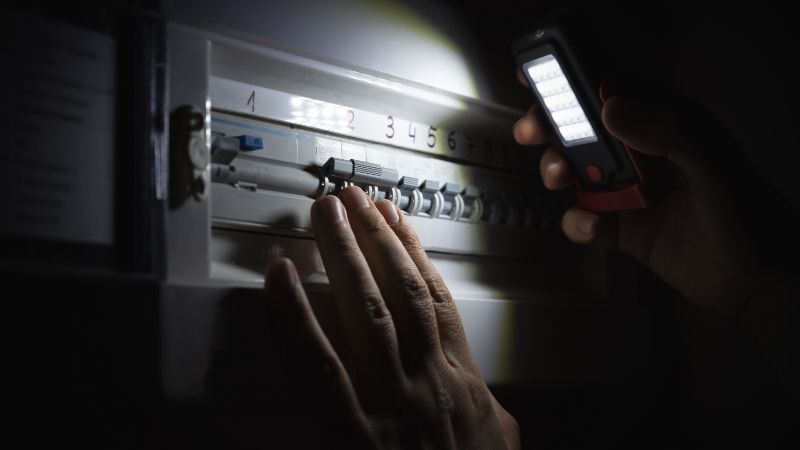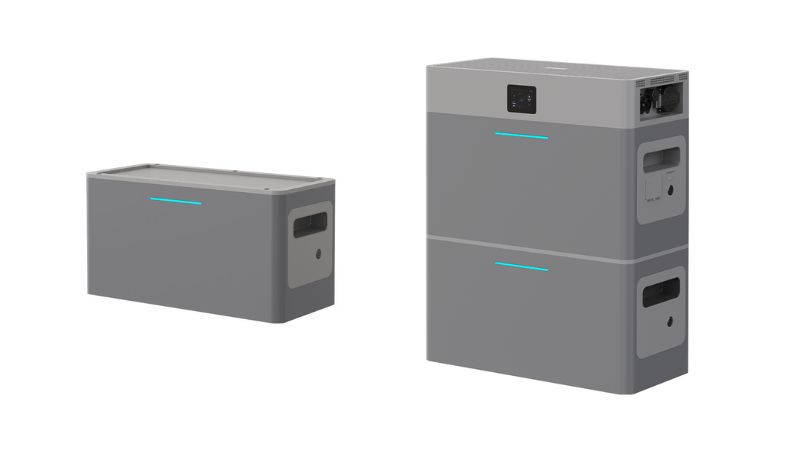When the lights go out, you want to know if your solar setup can keep things running. The good news is that many solar batteries can work during a blackout. Solar batteries can power your home when the grid is down, as long as they’re set up correctly.
Solar batteries store extra energy your panels make during sunny times. When a blackout happens, these batteries can kick in to keep your fridge cold and your lights on. But not all solar systems are the same. You need a special setup that can disconnect from the grid and work on its own.

If you’re thinking about getting solar batteries, it’s good to know they can help during power outages. They can keep your important stuff running, like fridges and medical devices. Plus, you might even save money on your energy bills in the long run. Solar batteries give you a way to be ready for blackouts and use clean energy at the same time.
Understanding Solar Batteries and Their Role
Solar batteries are key for keeping the lights on when the power goes out. They store extra energy from your solar panels to use later.
Solar batteries are devices that store electricity made by solar panels. They keep power for when you need it most. These batteries come in different types, like lithium-ion or lead-acid.
Your solar panels make energy during the day. Sometimes, you don’t use all of it right away. That’s where solar batteries come in. They save that extra power for later use.
At night or on cloudy days, you can tap into this stored energy. It’s like having a backup power source right at home. Solar batteries also help you use more of the clean energy your panels make.
How Solar Batteries Provide Blackout Protection
When the power grid fails, solar batteries can keep your home running. They switch on quickly to give you power. This happens through a special “blackout mode.”
In blackout mode, your battery system disconnects from the grid. This keeps you and utility workers safe. Your stored energy then flows to your home’s circuits.
You can keep important things running, like:
- Lights
- Fridges
- Medical devices
Your solar panels can still charge the batteries during a daytime blackout. This means you might have power for hours or even days.
Remember, not all solar setups work in blackouts. You need a system with blackout protection features. Talk to a solar pro to make sure your system can keep you powered when the grid goes down.
The Mechanism of Solar Batteries During Power Outages
Solar batteries can keep your lights on when the grid goes down. They work with your solar panels and special equipment to give you power during blackouts.

Blackouts vs. Power Outages: A Distinction
Blackouts happen when the whole power grid fails. Power outages can be more local, like when a storm knocks out lines on your street.
Solar batteries help in both cases. They store extra energy your panels make during sunny days. When the grid goes out, this saved power kicks in.
You won’t notice a difference in how your home runs. Your fridge, lights, and Wi-Fi can keep working like normal.
How Solar Inverters Support During Blackouts
Solar inverters are key players during blackouts. They change the DC power from your panels and batteries into AC power your home can use.
Regular inverters shut off during blackouts for safety. But special “hybrid” inverters can keep working. They disconnect from the grid and only power your home.
These smart inverters also manage power flow. They direct solar energy to your batteries or your home as needed.
Maintaining Energy Supply with Solar Battery Systems
Your solar battery system acts like a mini power plant during outages. It takes over when the grid fails, giving you a steady power supply.
The system checks your energy use and adjusts. It may turn off big appliances to save power for essential items.
You can often control what gets power through an app. This lets you stretch your stored energy for days if needed.
Some systems even let you add more batteries later. This gives you even more backup time for long outages.
Can a Battery Power Your Whole Home in an Outage?
A solar battery can power your whole home during a blackout, but it depends on a few factors. The size of your battery and your home’s energy needs play a big role.
Most homes use about 30 kilowatt-hours (kWh) of electricity per day. A typical solar battery holds 10-15 kWh. This means one battery likely won’t power everything.
You have two main options for backup power:
- Whole-home backup: Multiple batteries to run everything
- Partial backup: One or two batteries for essential items only
Whole-home systems cost more but give you full power. Partial backups are cheaper and can still keep important things running. To figure out if you need whole-home or partial backup, look at your energy bills. Add up how much power you use each day. Then compare that to the battery sizes available.
Remember, you’ll use less energy during an outage. You might skip running the dishwasher or doing laundry to save power for more important things.
How Long Can a Battery Keep Your Home Running?
The time a solar battery can power your house during a blackout depends on a few key things. Your battery’s storage capacity is crucial. This is measured in kilowatt-hours (kWh).
A larger capacity means more stored energy for your home. For example, a 10 kWh battery will last longer than a 5 kWh one.
Your energy use also matters. If you’re running many appliances, the battery will drain faster. During an outage, you might use less power than usual.
Here’s a simple breakdown:
- Small battery (5 kWh): 2-5 hours
- Medium battery (10 kWh): 5-10 hours
- Large battery (20 kWh): 10-20 hours
These times can vary based on your energy needs. You can extend battery life by using less power during an outage.
Some tips to make your battery last longer:
- Turn off non-essential items
- Use energy-efficient appliances
- Limit heating and cooling use
Remember, battery technology is always improving. Newer batteries may offer better storage capacity and longer run times.
You can also connect multiple batteries for more power. This increases your energy storage and keeps your home running longer during blackouts.
Economic Benefits and Considerations for Solar Battery Owners
Solar batteries can help you save money and gain energy independence. They offer ways to cut costs and make the most of your solar power system. Let’s look at how they can affect your wallet and home energy use.
Reducing Energy Bills with Solar Batteries
Solar batteries store extra energy your panels make during the day. You can use this power at night or when it’s cloudy. This means you buy less power from the grid, lowering your energy bills.
Some power companies charge more for electricity during peak times. With a battery, you can avoid these high rates. You’ll use stored energy instead of buying expensive peak-time power.
Batteries also help if your area has time-of-use rates. You can charge your battery when rates are low and use that power when rates are high.
Understanding Electricity Rates and Charge Cycles
Knowing your local electricity rates is key to saving money with solar batteries. Look at your power bill to see how rates change throughout the day.
Most batteries work on charge cycles. A cycle is one full charge and discharge. Good batteries can handle thousands of cycles. This affects how long your battery will last and how much you’ll save over time.
Try to match your battery use to your power needs and local rates. This way, you’ll get the most value from your system. It might take some tweaking, but it can lead to big savings on your power bills.
Choosing the Right Solar Battery Manufacturer
Pick batteries from a trusted maker. Deye ESS offers warranties that protect your investment. Deye batteries are suitable for both residential, commercial, and utility applications. They come in high voltage and low voltage series, with capacities ranging from 8kWh to 24kWh (High Voltage) and 5kWh to 327kWh (Low Voltage).
Consider Deye ESS batteries for their high round-trip efficiencies (up to 97.6% for high voltage), long lifespans, and safety features. A good battery will last many years and help you save money on power.
